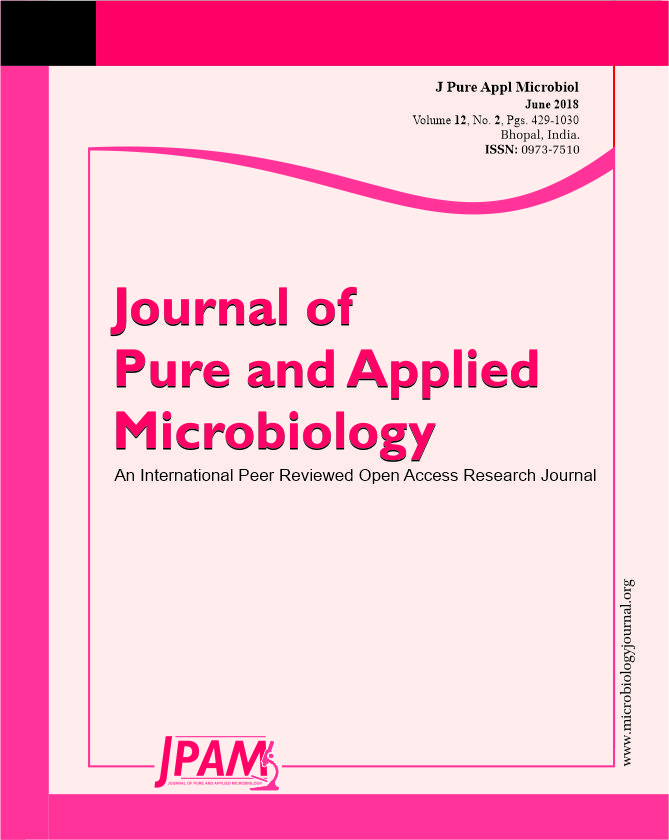Fifty-one rhizobacteria were isolated from root nodules of the wild legume Lathyrus ochrus, wild legume growing in a polluted soil around the Steel Factory Sider El-Hadjar in the north east of Algeria. These isolates characterized for their ability to dissolve inorganic phosphate and their tolerance to the following heavy metals cadmium, cobalt, chromium, copper, mercury, nickel, lead, iron and zinc. Sixty per cent of the isolates solubilize Ca3 (PO4)2 and CaHPO4 on solid agar media. The solubilization of an Algerian rock phosphate (ARP) carried out on liquid media (National Botanical Research Institute) and the higher concentrations of phosphate released by isolates LnPF46 and LnPF32 are respectively 150.22 and 206.98 mg/L. The test of the tolerance to heavy metals show that isolates LnPF44, LnPG1 and LnPG2 are resistant to high concentrations of iron, zinc, mercury, lead and copper.
ARP, heavy metals, Lathyrus ochrus, Plant Growth Promoting Rhizobacteria (PGPR), phosphate solubilization.
© The Author(s) 2018. Open Access. This article is distributed under the terms of the Creative Commons Attribution 4.0 International License which permits unrestricted use, sharing, distribution, and reproduction in any medium, provided you give appropriate credit to the original author(s) and the source, provide a link to the Creative Commons license, and indicate if changes were made.


